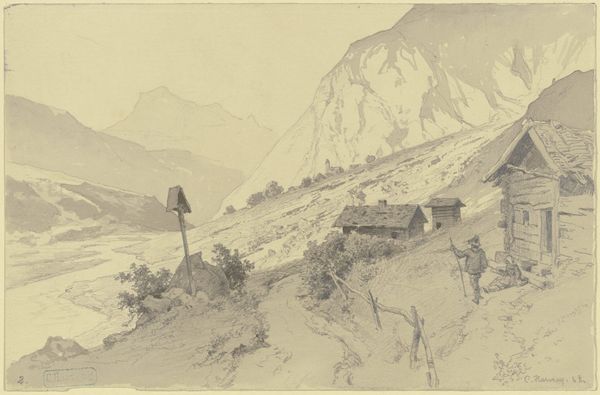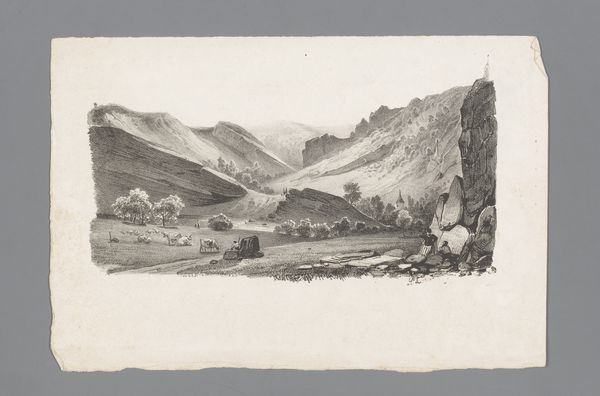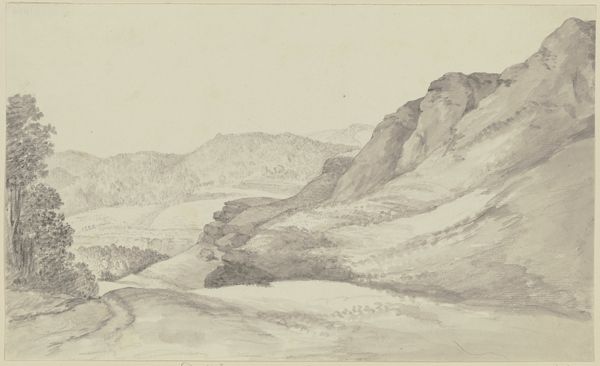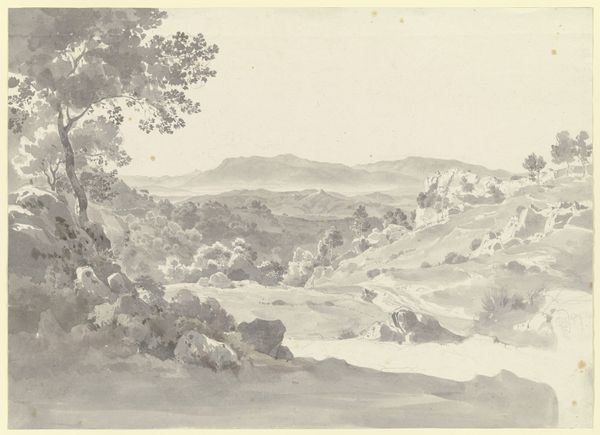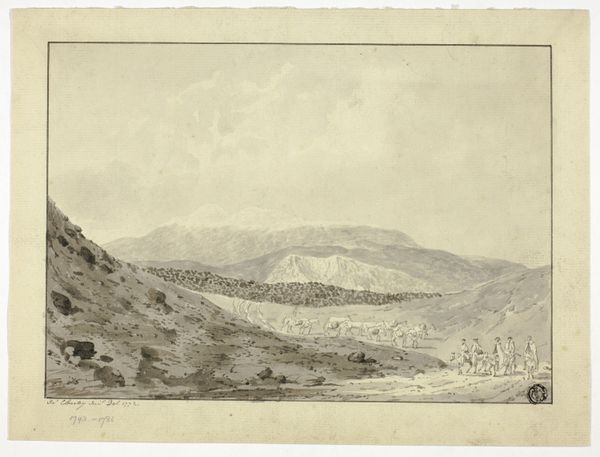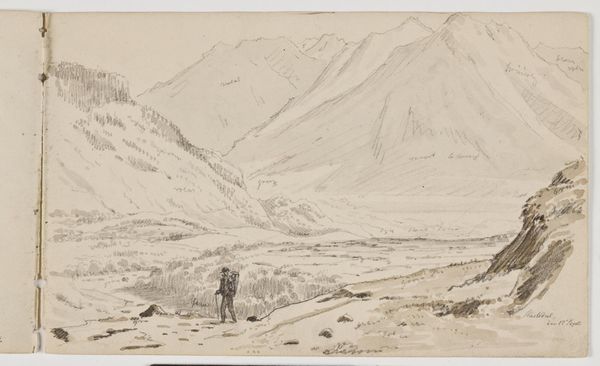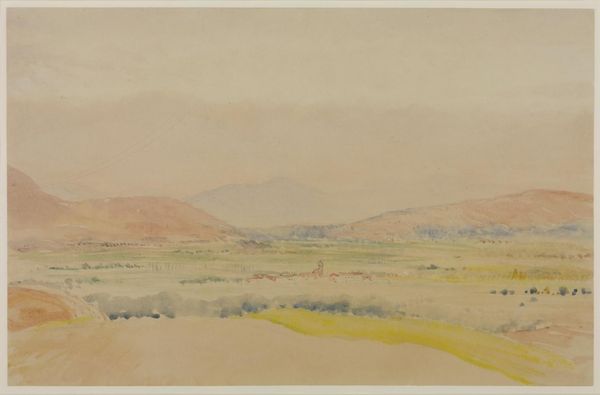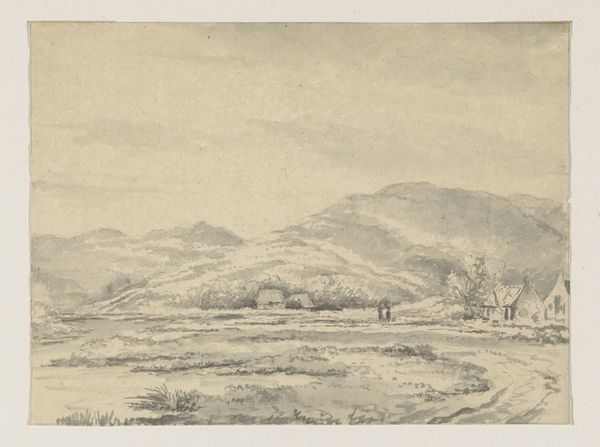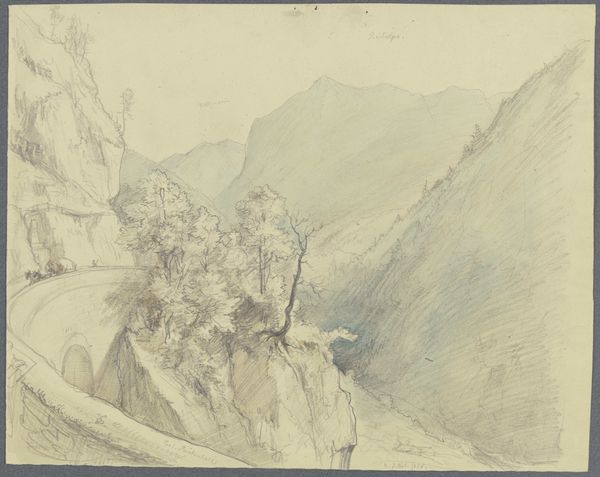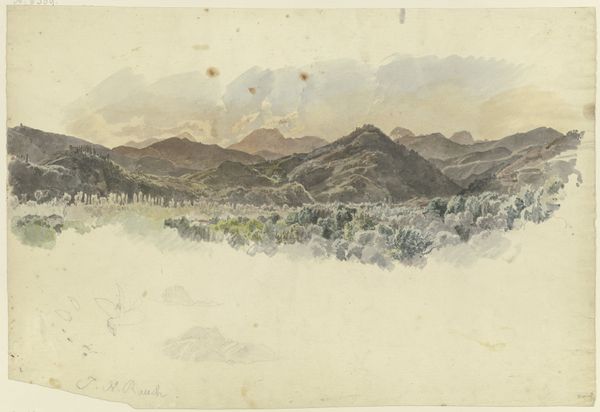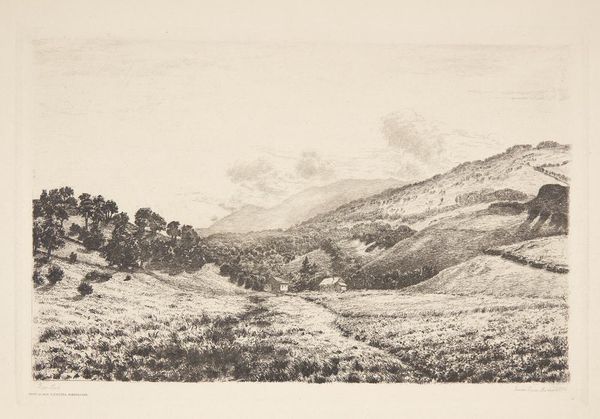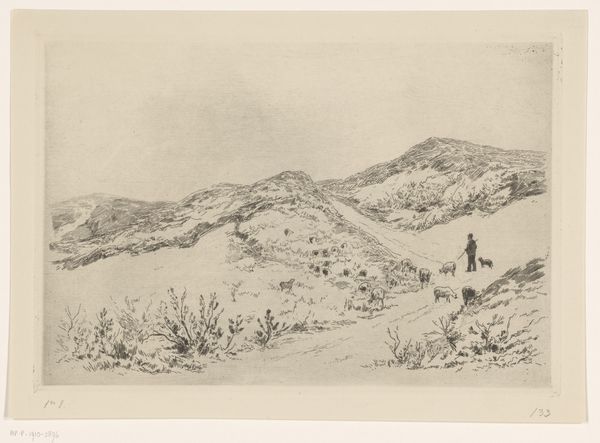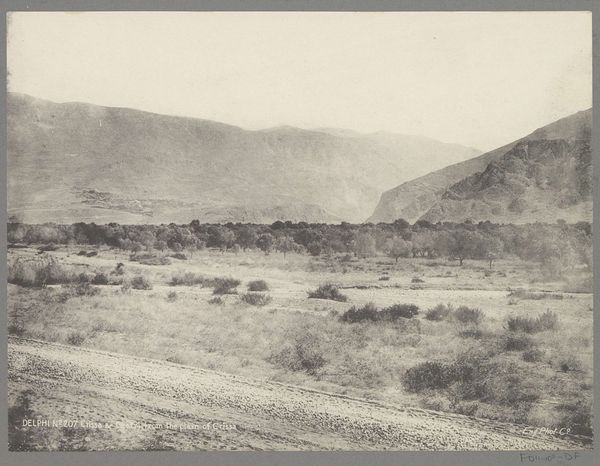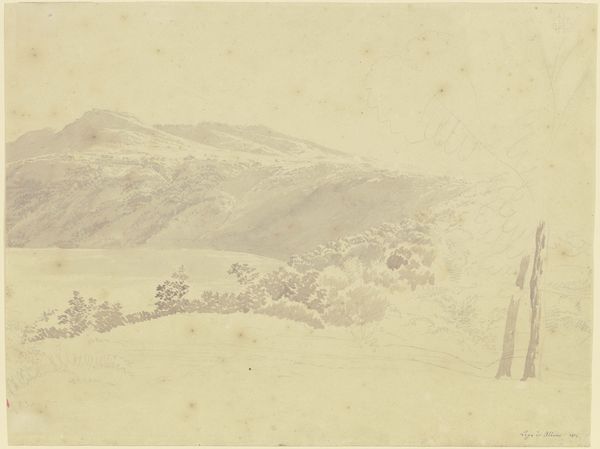
Copyright: Public Domain
This drawing of a wide mountain valley with rivers was made by Karl Friedrich Harveng sometime in the 19th century. Harveng used graphite pencils on paper, a relatively inexpensive and portable medium, perfect for capturing landscapes en plein air. Look closely, and you’ll see Harveng’s delicate and precise strokes, used to render the textures of the rocks, trees, and water. Notice how the varying pressure of the pencil creates depth and shadow, giving the scene a sense of atmosphere. The repeated, careful strokes speak to hours of labor, with the artist patiently building up the image layer by layer. Drawings like this were often made as studies for larger paintings, or as independent works of art to be sold to tourists eager to own a piece of the picturesque landscape. The drawing reflects a growing market for art among the middle classes, and the increasing accessibility of art materials during the industrial era. It reminds us that even seemingly simple drawings can be deeply connected to the social and economic forces of their time.
Comments
No comments
Be the first to comment and join the conversation on the ultimate creative platform.
